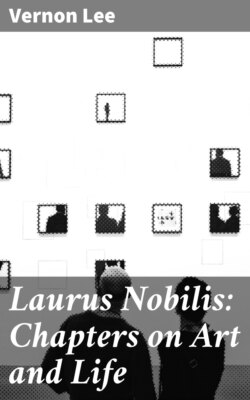Читать книгу Laurus Nobilis: Chapters on Art and Life - Vernon Lee - Страница 29
На сайте Литреса книга снята с продажи.
VI.
ОглавлениеHence all strong æsthetic feeling will always prefer ownership of the mental image to ownership of the tangible object. And any desire for material appropriation or exclusive enjoyment will be merely so much weakening and adulteration of the æsthetic sentiment. Since the mental image, the only thing æsthetically possessed, is in no way diminished or damaged by sharing; nay, we have seen that by one of the most gracious coincidences between beauty and kindliness, the æsthetic emotion is even intensified by the knowledge of co-existence in others: the delight in each person communicating itself, like a musical third, fifth, or octave, to the similar yet different delight in his neighbour, harmonic enriching harmonic by stimulating fresh vibration.
If, then, we wish to possess casts, copies, or photographs of certain works of art, this is, æsthetically considered, exactly as we wish to have the means—railway tickets, permissions for galleries, and so forth—of seeing certain pictures or statues as often as we wish. For we feel that the images in our mind require renewing, or that, in combination with other more recently acquired images, they will, if renewed, yield a new kind of delight. But this is quite another matter from wishing to own the material object, the thing we call work of art itself, forgetting that it is a work of art only for the soul capable of instating it as such.
Thus, in every person who truly cares for beauty, there is a necessary tendency to replace the illusory legal act of ownership by the real spiritual act of appreciation. Charles Lamb already expressed this delightfully in the essay on the old manor-house. Compared with his possession of its beauties, its walks, tapestried walls and family portraits, nay, even of the ghosts of former proprietors, the possession by the legal owner was utterly nugatory, unreal:
Mine too, Blakesmoor, was thy noble Marble Hall, with its mosaic pavements, and its twelve Cæsars; … mine, too, thy lofty Justice Hall, with its one chair of authority. … Mine, too—whose else?—thy costly fruit-garden … thy ampler pleasure-garden … thy firry wilderness. … I was the true descendant of those old W——'s, and not the present family of that name, who had fled the old waste places."
How often have not some of us felt like that; and how much might not those of us who never have, learn, could they learn, from those words of Elia?
